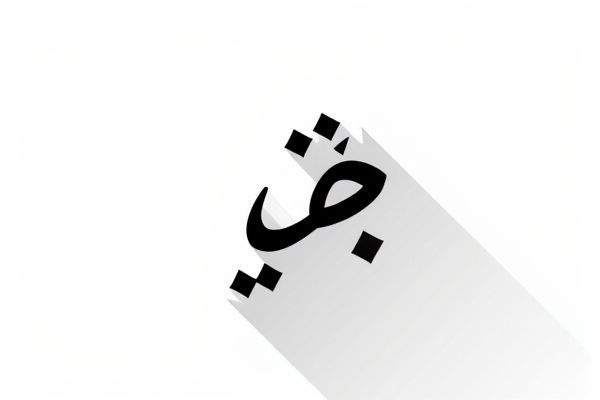
Explore our online Arabic random alphabet generator for quick and easy letter creation. Generate unique Arabic characters effortlessly to enhance your linguistic projects and creative tasks. Perfect for educators, students, and designers seeking authentic Arabic script samples.
Online tool for random alphabet generator arabic
We have prepared several samples for a random Arabic alphabet generator that are ready to use and randomize. You can also enter your own list for customization. With a single click, you will receive a randomized list along with one value to use.Data Source
Single Result
Multiple Results
Introduction to Arabic Random Alphabet Generators
Arabic random alphabet generators produce unpredictable sequences of Arabic letters, useful for linguistic research, cryptographic applications, and creative writing. These tools utilize algorithms to ensure genuine randomness across the 28 primary letters of the Arabic alphabet, often including diacritical marks for enhanced complexity. By generating diverse combinations, they support language learning, coding techniques, and data encryption in Arabic contexts.
Key Features of Arabic Alphabet Generators
Arabic alphabet generators produce randomized Arabic characters by leveraging the distinct 28-letter script, including isolated, initial, medial, and final forms for accurate linguistic representation. Key features include customizable output length, options for generating letters with or without diacritics (harakat), and the ability to simulate realistic letter combinations reflecting Arabic morphology. They support Unicode encoding to ensure compatibility across various platforms, making them ideal for educational tools, cryptography, and language processing applications.
Importance of Randomization in Arabic Language Learning
Random alphabet generators for Arabic enhance language learning by providing varied and unpredictable letter sequences, crucial for mastering script recognition and pronunciation. Incorporating randomization helps learners break repetition patterns, boosting memory retention and improving reading fluency in Arabic. This method supports comprehensive understanding of diacritics and letter forms, essential for accurate comprehension and writing skills.
Uses of Random Arabic Letters in Education
Random Arabic letter generators are valuable tools in language education for enhancing students' familiarity with the Arabic script and improving letter recognition skills. These generators help create randomized letter sequences that can be used in phonics exercises, spelling drills, and reading practice to promote active engagement and reinforce memory retention. Educators utilize random Arabic letters to design interactive games and quizzes, fostering a dynamic learning environment that supports literacy development in both native and non-native Arabic speakers.
Online Tools for Generating Random Arabic Alphabets
Online tools for generating random Arabic alphabets offer user-friendly interfaces that support customized output length and letter selection based on specific linguistic needs. These tools utilize advanced algorithms to ensure unbiased randomness, making them ideal for educational exercises, cryptographic applications, and language research. Popular platforms include Random.org and TextFixer, which provide instant generation with options for including diacritics and letter variations.
Customization Options in Arabic Letter Generators
Arabic letter generators offer extensive customization options, allowing users to select specific letter sets, adjust font styles, and control the output length for tailored results. Many tools support diacritic inclusion, enabling more precise and contextually accurate Arabic text generation. These features enhance usability for educational purposes, graphic design, and linguistic experiments involving the Arabic script.
Integrating Random Generators in Language Apps
Integrating random alphabet generators for Arabic enhances language apps by enabling dynamic character selection and practice, fostering improved vocabulary retention and letter recognition. These generators support personalized learning paths by providing unpredictable sequences, which are essential for interactive quizzes and language games. Utilizing Unicode-compliant algorithms ensures accurate rendering of Arabic script across diverse platforms, boosting user engagement and fluency development.
Enhancing Memorization with Random Arabic Letters
Random Arabic letter generators effectively enhance memorization by exposing users to unpredictable sequences of letters, promoting better retention through active recall practices. Utilizing a random Arabic alphabet generator supports language learners and educators in reinforcing letter recognition, phonetic association, and writing skills. These tools facilitate cognitive engagement by providing varied and repetitive practice, essential for mastering the Arabic script and improving long-term memory.
Security and Privacy in Alphabet Generating Tools
Random alphabet generators in Arabic prioritize security by utilizing cryptographically secure algorithms to ensure unpredictability in letter sequences. These tools often incorporate privacy measures such as local data processing and minimal data retention to protect user information. Implementing strong encryption standards further safeguards generated outputs from unauthorized access or tampering.
Future Trends in Arabic Alphabet Generation Technology
Future trends in Arabic alphabet generation technology demonstrate advancements in AI-driven algorithms that enhance character accuracy and contextual relevance. Integration of deep learning models facilitates more natural and fluid random generation of Arabic scripts, accommodating complex calligraphic styles. Emerging tools prioritize real-time customization and multilingual support, optimizing usability for diverse digital applications and language preservation efforts.
 azrandom.com
azrandom.com